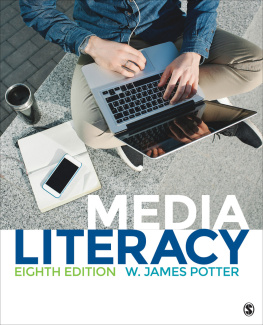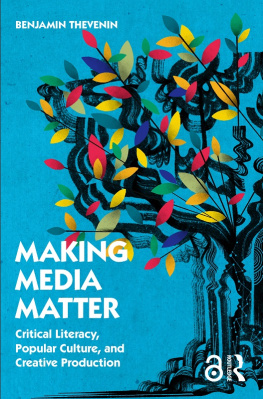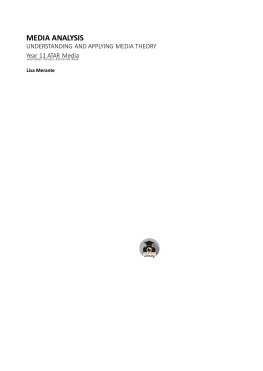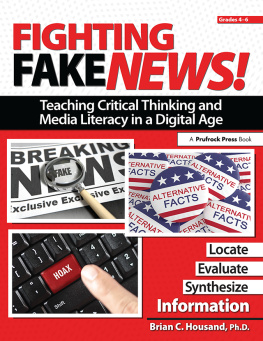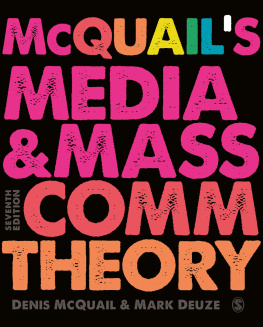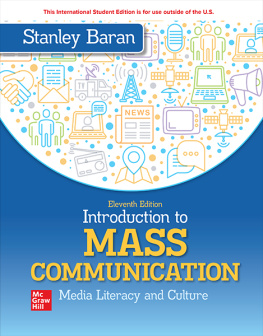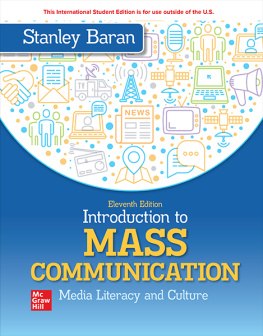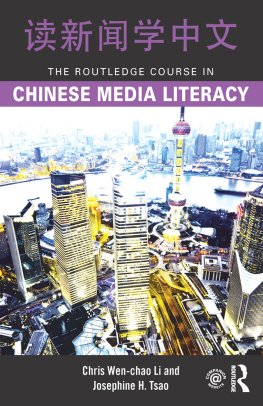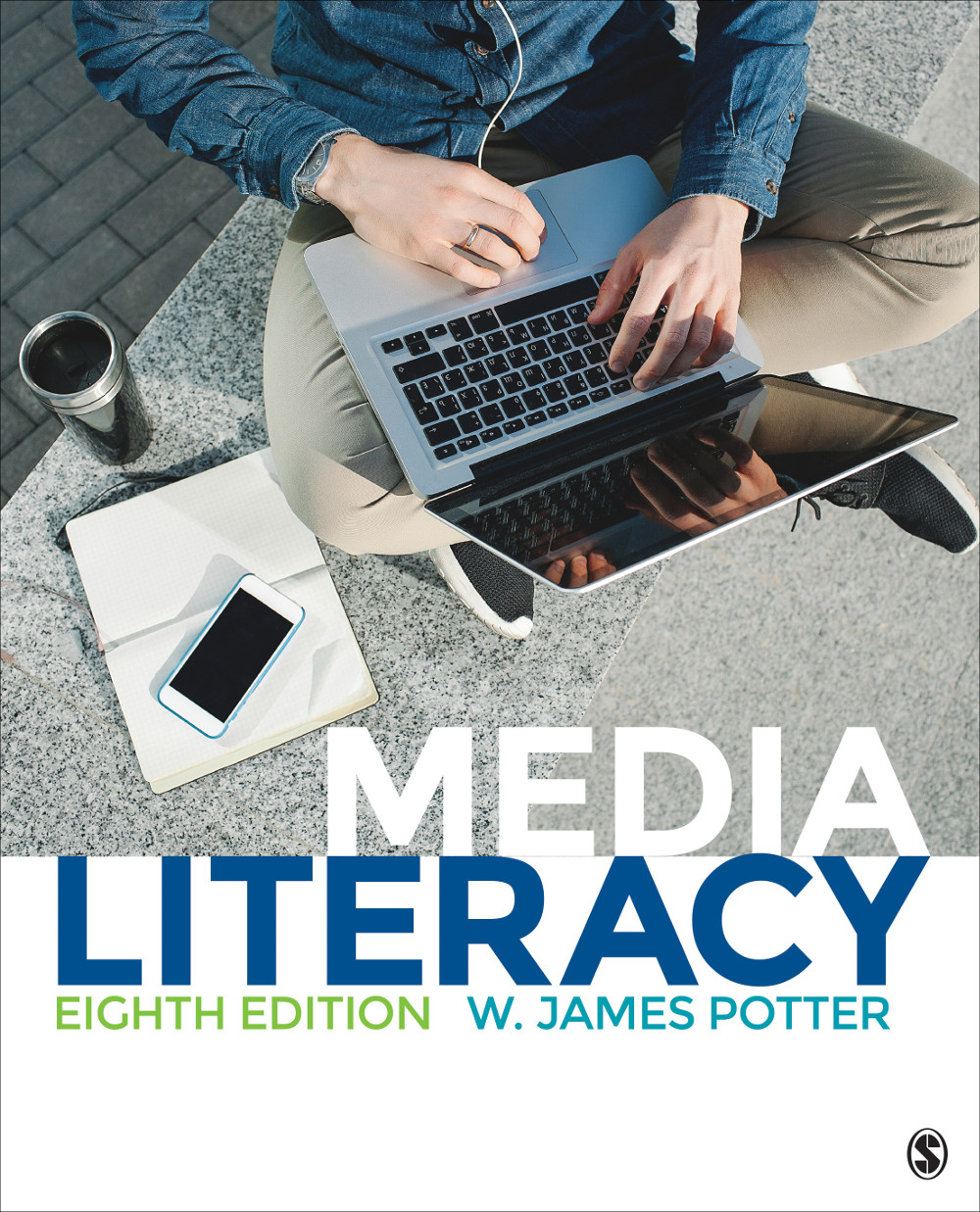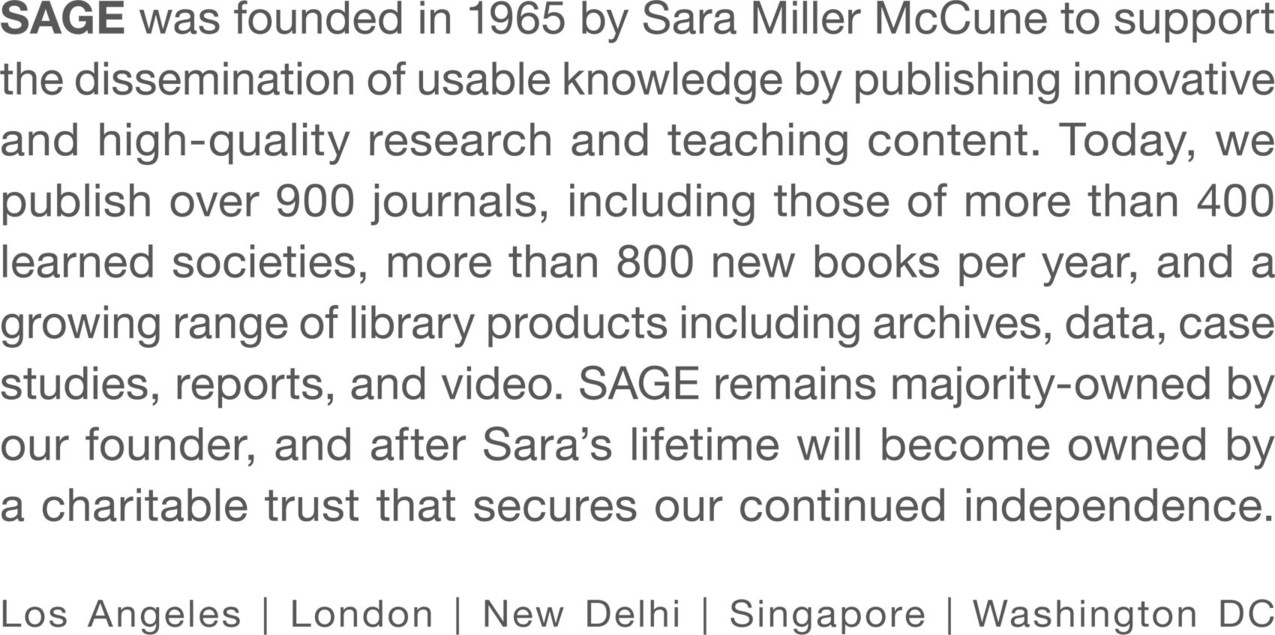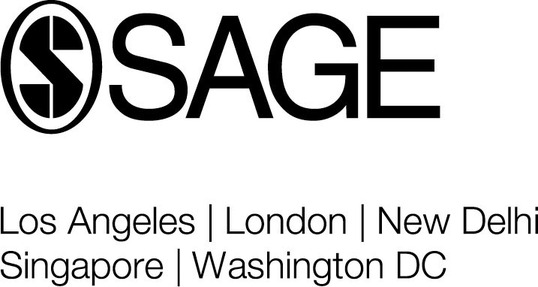Media Literacy
Eighth Edition
Media Literacy
Eighth Edition
- W. James Potter
- University of California, Santa Barbara
FOR INFORMATION:
SAGE Publications, Inc.
2455 Teller Road
Thousand Oaks, California 91320
E-mail: order@sagepub.com
SAGE Publications Ltd.
1 Olivers Yard
55 City Road
London EC1Y 1SP
United Kingdom
SAGE Publications India Pvt. Ltd.
B 1/I 1 Mohan Cooperative Industrial Area
Mathura Road, New Delhi 110 044
India
SAGE Publications Asia-Pacific Pte. Ltd.
3 Church Street
#10-04 Samsung Hub
Singapore 049483
Copyright 2016 by W. James Potter.
All rights reserved. No part of this book may be reproduced or utilized in any form or by any means, electronic or mechanical, including photocopying, recording, or by any information storage and retrieval system, without permission in writing from the publisher.
Printed in the United States of America
ISBN 978-1-4833-7932-6
This book is printed on acid-free paper.
Acquisitions Editor: Matthew Byrnie
Editorial Assistant: Janae Masnovi
eLearning Editor: Gabrielle Piccininni
Production Editor: Laura Barrett
Copy Editor: Sarah J. Duffy
Typesetter: C&M Digitals (P) Ltd.
Proofreader: Theresa Kay
Indexer: Marilyn Augst
Cover Designer: Scott Van Atta
Marketing Manager: Ashlee Blunk
Preface
Most of us think we are fairly media literate. We know how to access all kinds of media to find the music, games, information, and entertainment we want. We recognize the faces of many celebrities and know many facts about their lives. We recognize a range of musical styles and have developed strong preferences for what we like. We can easily create messages through photos, videos, and text then upload them to various sites on the Internet. Clearly, we know how to expose ourselves to the media, we know how to absorb information from them, we know how to be entertained by them, and we know how to use them to create our own messages and share them with others.
Are we media literate? Yes, of course. We have acquired a great deal of information and developed remarkable skills. The abilities to speak a language, read, understand photographs, and follow narratives are significant achievements, although we often take them for granted.
While we should not overlook what we have accomplished, it is also important to acknowledge that we all can be much more media literate. In many ways, your overall level of media literacy now is probably about the same as it was when you became a teenager. Since that time, your information base has grown enormously about some types of media messages, such as popular songs, Internet sites, movies, and TV shows. However, your information base may not have grown much in other areasabout the economics of the mass media industry, who controls that industry, how decisions are made about the production of content, and how that constant flow of content affects you and society in all sorts of subtle ways. Thus, your current level of media literacy allows you to do many things with the media, but you could be exercising much more control and getting more out of your media exposuresif you grew your knowledge in additional areas.
The more you are aware of how the mass media operate and how they affect you, the more you gain control over those effects and the more you will separate yourself from typical media users who have turned over a great deal of their lives to the mass media without realizing it. By turning over a great deal of their lives to the mass media, I mean more than time and money, although both of those are considerable. I also mean that most people have allowed the mass media to program them in ways they are unaware of. And because they are unaware of these ways, they cannot shape or control that programming.
The purpose of this book is to show you how the media have been shaping your beliefs and behavioral patterns. Until you become aware of how much your beliefs have been formed by media influence and how the media have accomplished all that shaping, you will continue to float along in a flood of media messages oblivious to their constant, subtle influence. However, once you begin to see things from a media literacy perspective, you can see how this process of influence works, and this understanding will help you to gain control over this shaping process.
Organization of the Book
This book is composed of 15 core instructional chapters followed by six issues chapters. The purpose of the 15 core chapters is to provide you with the framework of ideas to help you organize your knowledge structures in four areas: media audiences, media industries, media content, and media effects. These chapters also present you with some facts and figures to hang on those frameworks. To help you acquire more information to elaborate these frameworks on your own, the chapters include a list of books, articles, and websites for further reading; I have selected these as particularly interesting extensions of what I have presented in each chapter. Also, because things change so fast these days with the media, I have also provided several sources of informationtypically websiteswhere you can access the most current information available on each topic.
, provides an introduction to the problems of living in a media messagesaturated culture and how the media literacy perspective can help you.
poses the question: Should children be treated as a special audience? This chapter shows you that, yes, children are a special audience in some ways, but so too are adolescents, young adults, and the elderly.
to show the business foundations of the industries.
introduces the idea of content and
presents the major characteristic of all media contentwhat I call one-step remove reality. Then, on interactive content, such as games and social networking media.
. Those processes are hardly ever simple or direct. More often, the media work in concert with many other factors that each serve to increase the probability that an effect may occur.
, is a springboard chapter to help you use what you have learned to build your own media literacy strategy.
The first time you read through these 15 core chapters, stay focused on the most important ideas as you build your own knowledge structures. Then once you have these structures, go back and re-read the chapters to add the detail you need to elaborate your understanding.
, which examines the growing concern about privacy and how the new media environment is making it much more difficult for you to protect your privacy.
If you engage these issues on a superficial level, then you will likely be frustrated by what seems like unsolvable problems. But if you dig deeper and apply your developing skills of media literacy, you will likely appreciate the complexities of these problems and find ways to begin reducing the influence of these problems in your own life. Thus you will be taking more control over issues that you previously thought were too big, too complicated, and the fault of other people.

